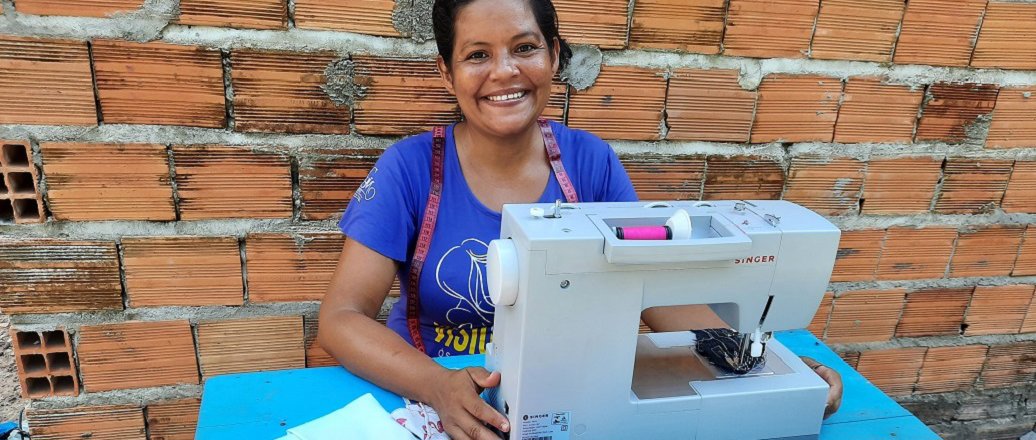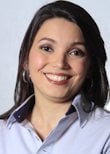Dozens of residents in Barcarena started receiving technical training in November for the production of non-medical face masks for protection against the coronavirus.
The initiative, supported by a network of local and international partners, aims to help seamstresses who have been affected by the pandemic, and to contribute to the development of the local economy, in addition to collaborating with the prevention of coronavirus.
The initiative is carried out by the Todos pela Trabalho, Alunorte and Albras Program, with support from the Sustainable Barcarena Initiative (IBS). The project also has financial support from the Hydro Sustainability Fund (FSH) and PPA Solidariedade. The consultancy Synergia Socioambiental is responsible for implementation.
As a result of the cutting, sewing and entrepreneurial workshops, around 120 sewing professionals linked to local associations will produce approximately 150,000 non-medical protective masks by June 2021. All the material used in the making of the units, such as fabrics, trims and packaging, will be made available by the initiative. In addition to generating income for professionals, who are paid for production, all masks produced will be donated to community associations in Barcarena, in partnership with IBS.
Collaboration and empowerment
The action is part of the Travessia Barcarena program, which has a total investment framework of BRL 3.8 million (€600,000).
“Hydro has teamed up with local and international partners in search of effective solutions to the needs of the municipality at this challenging time. This is an action aimed at the sustainable development of Barcarena and the empowerment and income generation for these women," says Eduardo Figueiredo, director of FSH.
During the project, participants will receive technical guidance on cutting and sewing, on the specifications and requirements for the production of non-medical masks, including guidance with health professionals on coping with Covid-19. In addition, principles of entrepreneurship and business will be offered.
Tools for economic independence
The training program will feature virtual modules, in which students will learn more about the use of digital tools to promote dialogue between members of the production chain and access to information. Thus, the course provides tools to improve local production and expand the market in which it operates, generating the continuous development of new products and the sustainability of business in the post-pandemic region.
Angela Araújo, a resident of Vila Nova, maintains a family tradition in sewing and sees the initiative as an opportunity to achieve her financial autonomy. “I saw my mother support the family with sewing and my intention is to become professional and earn my living. When I understood that sewing allows me to work and take care of my son, it gained strength,” says Araújo, who already participates in the first training modules of the project.
Travessia Barcarena
The Travessia Barcarena Project was articulated by the Hydro Sustainability Fund with financing partners, implementing partners and local partners and will last for 10 months. In addition to the income generation front for seamstresses in the region and prevention for Covid-19, it will support 90 farmers selected by the Ativa Barcarena project. The latter is a broader initiative by Hydro and will contribute with rural technical assistance for organizing agricultural production, implementing or improving production infrastructure, in addition to purchasing part of the agricultural production available in group cooperatives and donating these foods to communities social vulnerability in the municipality. It will also install mobile sinks at the Barcarena Producer Fair as a way to improve the hygiene and prevention conditions for Covid-19 in marketers and fair goers.
Hydro Sustainability Fund
It is a non-profit organization that promotes sustainable development and supports community-based projects and participatory dynamics. Established in 2019, the Hydro Sustainability Fund was born from a joint commitment by the companies Hydro, Albras and Alunorte to invest BRL 100 million to leverage initiatives and actions that contribute to the sustainable development of Barcarena, over a period of 10 years.
Published: November 20, 2020

